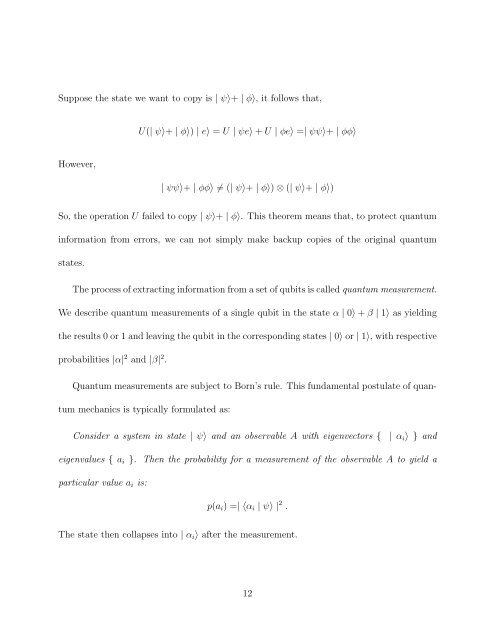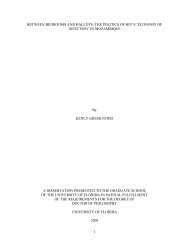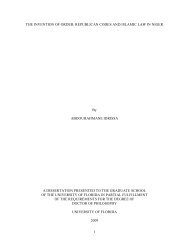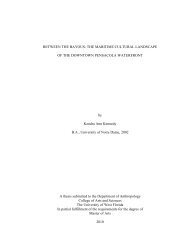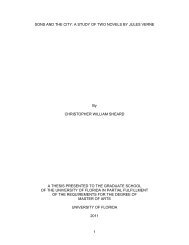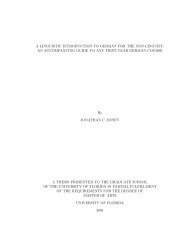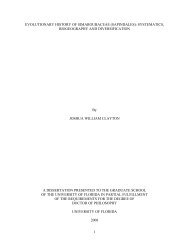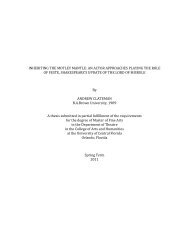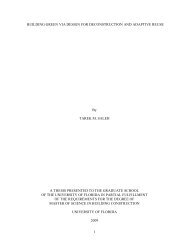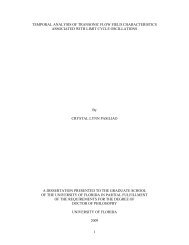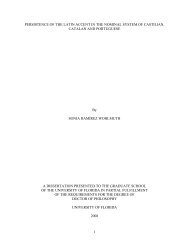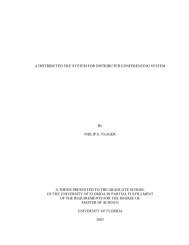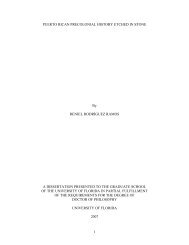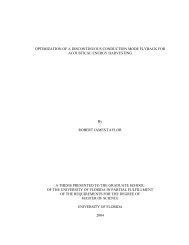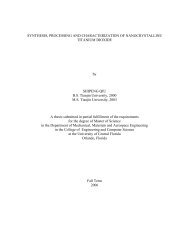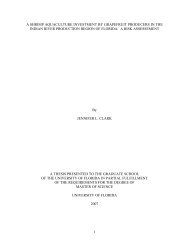t b a b a
t b a b a
t b a b a
Create successful ePaper yourself
Turn your PDF publications into a flip-book with our unique Google optimized e-Paper software.
Suppose the state we want to copy is | ψ〉+ | φ〉, it follows that,<br />
However,<br />
U(| ψ〉+ | φ〉) | e〉 = U | ψe〉 + U | φe〉 =| ψψ〉+ | φφ〉<br />
| ψψ〉+ | φφ〉 �= (| ψ〉+ | φ〉) ⊗ (| ψ〉+ | φ〉)<br />
So, the operation U failed to copy | ψ〉+ | φ〉. This theorem means that, to protect quantum<br />
information from errors, we can not simply make backup copies of the original quantum<br />
states.<br />
The process of extracting information from a set of qubits is called quantum measurement.<br />
We describe quantum measurements of a single qubit in the state α | 0〉 + β | 1〉 as yielding<br />
the results 0 or 1 and leaving the qubit in the corresponding states | 0〉 or | 1〉, with respective<br />
probabilities |α| 2 and |β| 2 .<br />
Quantum measurements are subject to Born’s rule. This fundamental postulate of quan-<br />
tum mechanics is typically formulated as:<br />
Consider a system in state | ψ〉 and an observable A with eigenvectors { | αi〉 } and<br />
eigenvalues { ai }. Then the probability for a measurement of the observable A to yield a<br />
particular value ai is:<br />
p(ai) =| 〈αi | ψ〉 | 2 .<br />
The state then collapses into | αi〉 after the measurement.<br />
12


